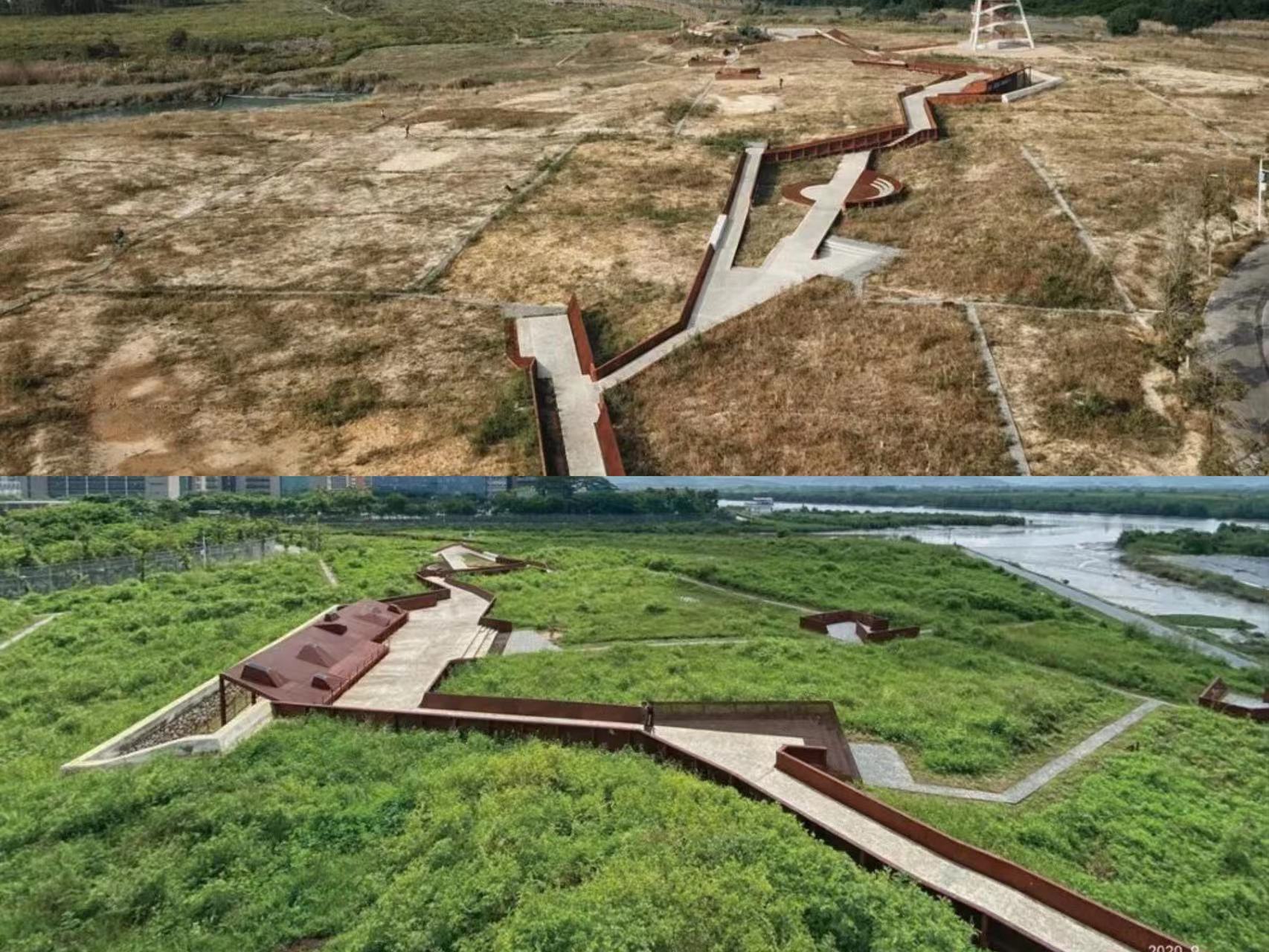
A comparison of the park before (upper) and after it was built.
A comparison of the park before (upper) and after it was built.
Pang Wei is a landscape architect for 20 years. He once received a project to design a commemorative park in Shenzhen, Guangdong Province, south China.
The park was built to commemorate the XIX International Botanical Congress. "After we got this project, we thought it was a rather constrained thing because when we talk about memorial, people usually think of celebrity monuments, memorial halls, and memorial sculptures, " Pang said.
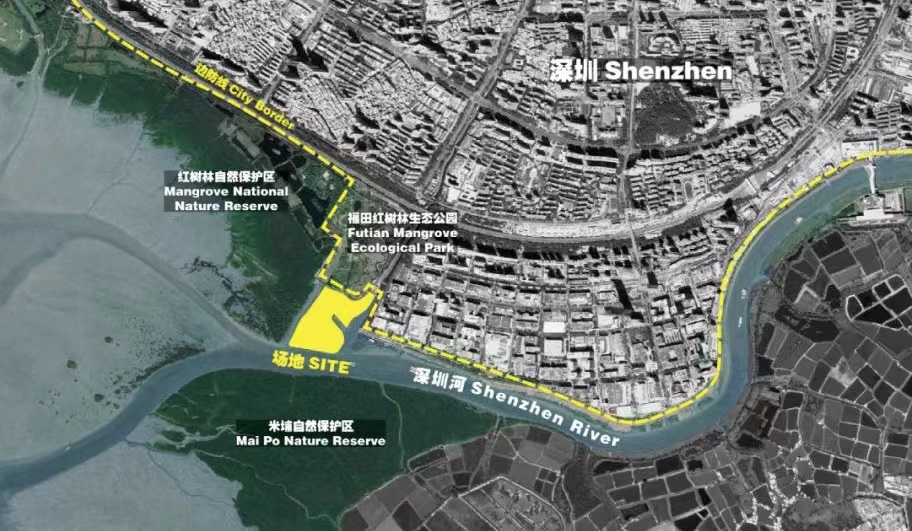
The yellow part is the location of the park.
The yellow part is the location of the park.
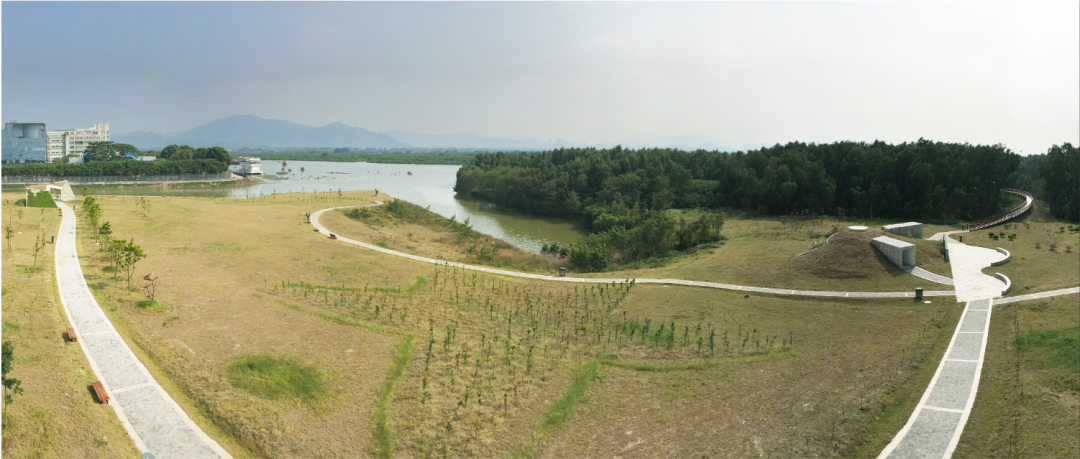
The park was basically devoid of plants at the beginning.
The park was basically devoid of plants at the beginning.
At that time, the land was particularly barren, with little vegetation, and it was originally a landfill for construction waste.
Pang was confused because he felt particularly unsuited to the subject. "When I think about it, I've never worn a good suit more than a few times in my life - can I do it well? "
He thought of the philosopher he admired so much. Aldo Leopold (1887-1948) is a prestigious American ecologist and pioneer of environmentalism. He is known as the founder of the New Environmental Theories in the U.S. and the Father of Land Ethic.
Leopold opposed incomplete human "selection", he said that those members of society who are neglected and excluded because they have no commercial value are often the basis for the perfect functioning of the land.
"Plants are not used as decorations of the land, or even a cover, but should be the expression and praise of the will of the land, " inspired by Aldo Leopold, Pang Wei had an idea. "We decided to complete the program without any plants, which means neither trees, nor grass, nor flowers, " Pang added.
This proposal was opposed by many experts, because they were not sure if it could be achieved. Meanwhile the person in charge was angry that they signed the contract and paid the deposit, and then received such a perfunctory plan.
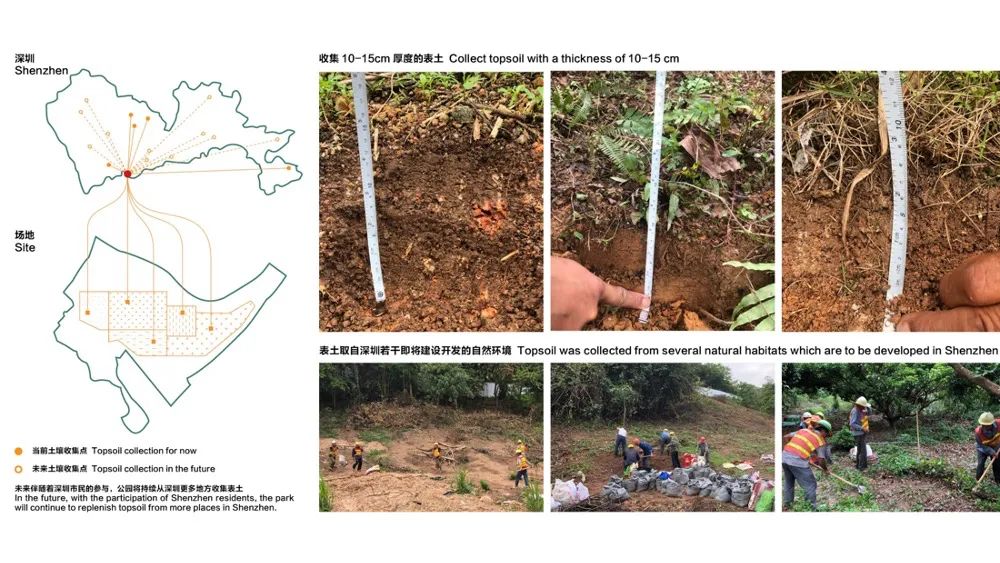
"We took soil samples from various representative places in Shenzhen and put them all in this park. There may be seeds inside the soil samples, so let it be, it's all natural results, " Pang explained that the plants will definitely be there, it's just a matter of growing them through wind, birds and insects. After a long discussion, this program was adopted.
"Soil is very precious, usually a 30-50 cm piece of soil, it takes 3000-20,000 years to form. The soil we are talking about is with organic components, with plants and insects, " Pang said.
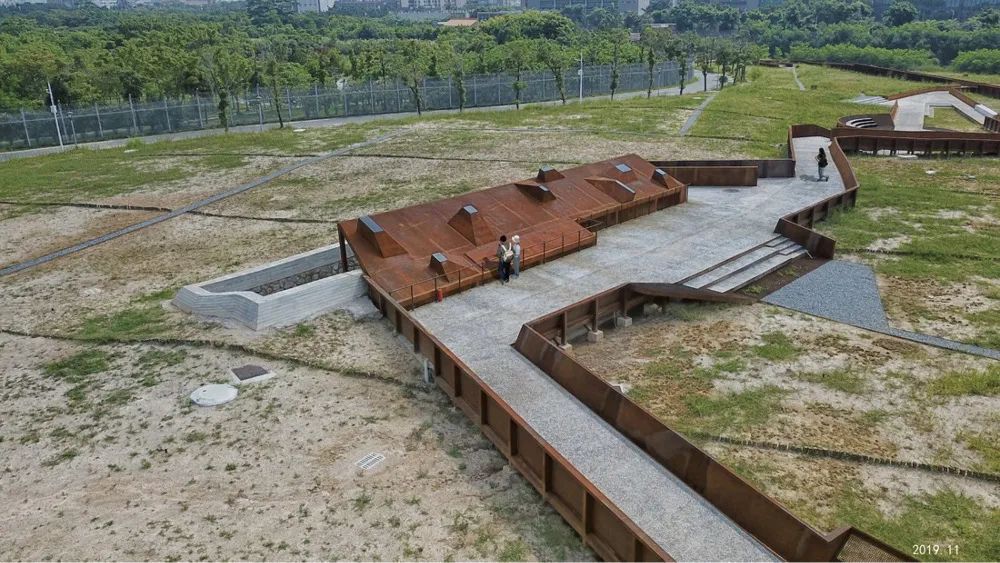
The observatory in the park.
The observatory in the park.
When this park was first built, it was desolate without any plants. But this park is growing and changing every day. "Time is the protagonist of this park, witnessing the growth of nature," Pang added.
In less than six months, this park was already lush and green. This was also due to the climate of Guangdong, with abundant rain and sunshine.
The staff also found a small viverrider, a key national-level protected animal, and a wide variety of insects, planktonic algae and zooplankton, which formed a huge ecosystem.
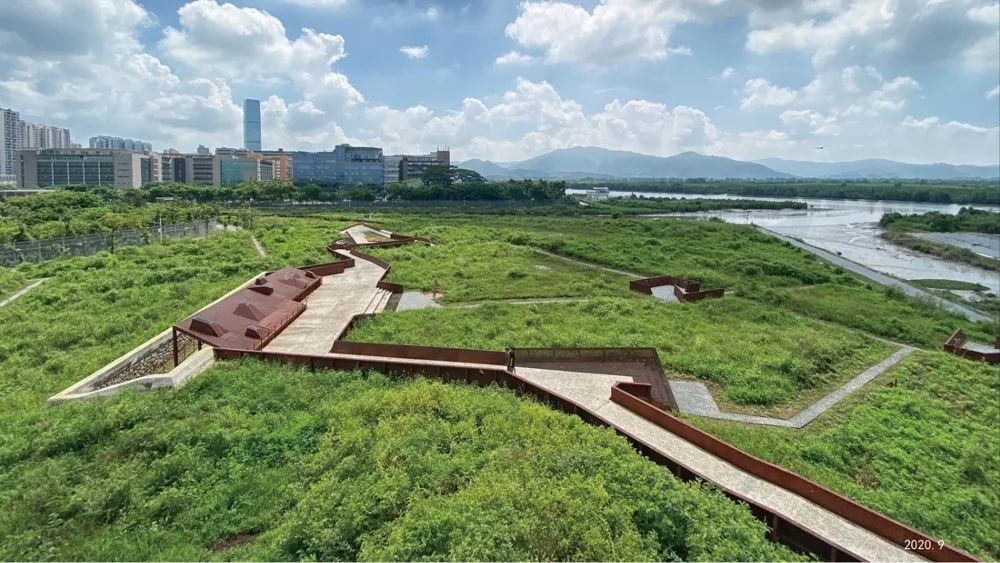
After a long time, the plant gradually grows up.
After a long time, the plant gradually grows up.
According to statistics, 37 species of plants grew within six months, along with seven alien plants. In addition, there is also a scientific activity for children called "fighting the green monster", which is to identify the vicious invasive species and eradicate them.
"It is a little bit of a compromise on this matter," Pang said, "There are so many native plants that are growing quite well, and they are fighting against alien plants. It's not realistic to say that there are only native species in a place, we are all evolving in species exchange," he explained.
Later, Shenzhen introduced the "2121 Project", a 100-year natural science experiment program in this park, which will allow non-governmental science organizations and young people to continuously observe nature.
"Our attitude towards nature should be that when our cities are full of excessive artificiality, we hope to have a natural park that leaves Mother Nature alone," Pang said.
(All photos by Pang Wei)
(If you want to contribute and have specific expertise, please contact us at nature@cgtn.com.)